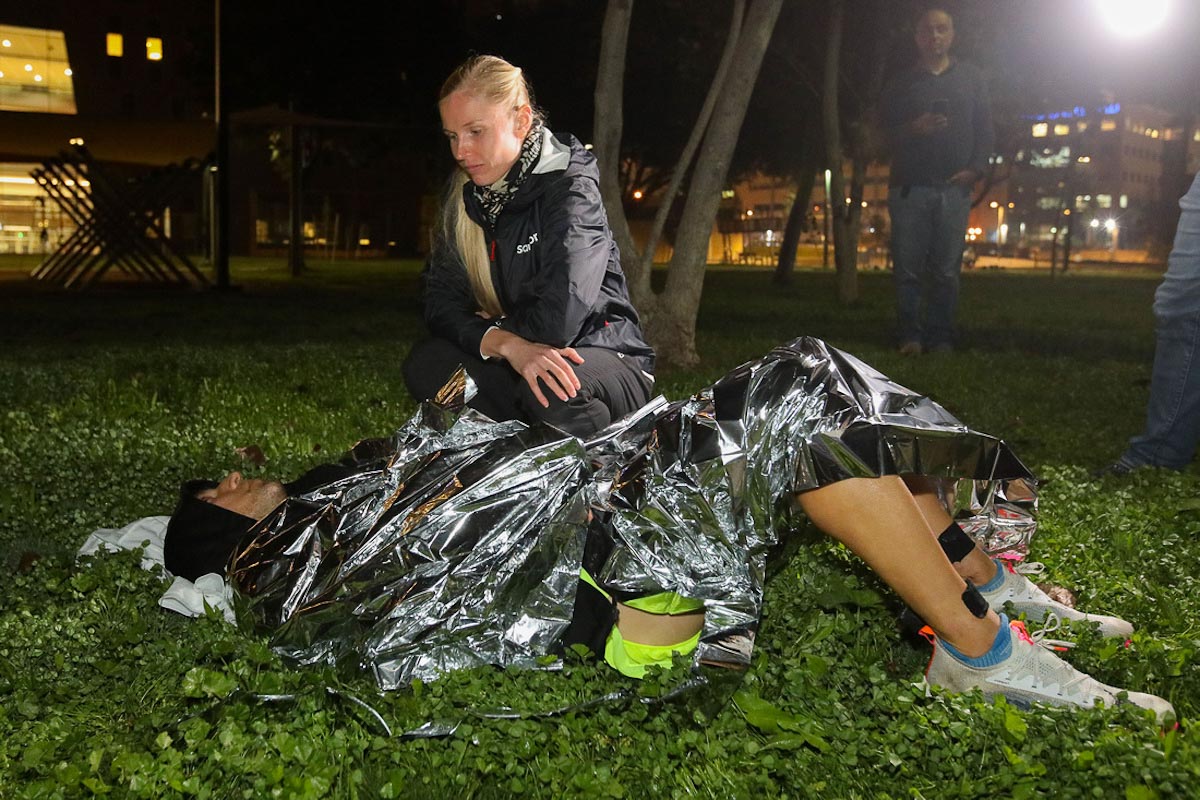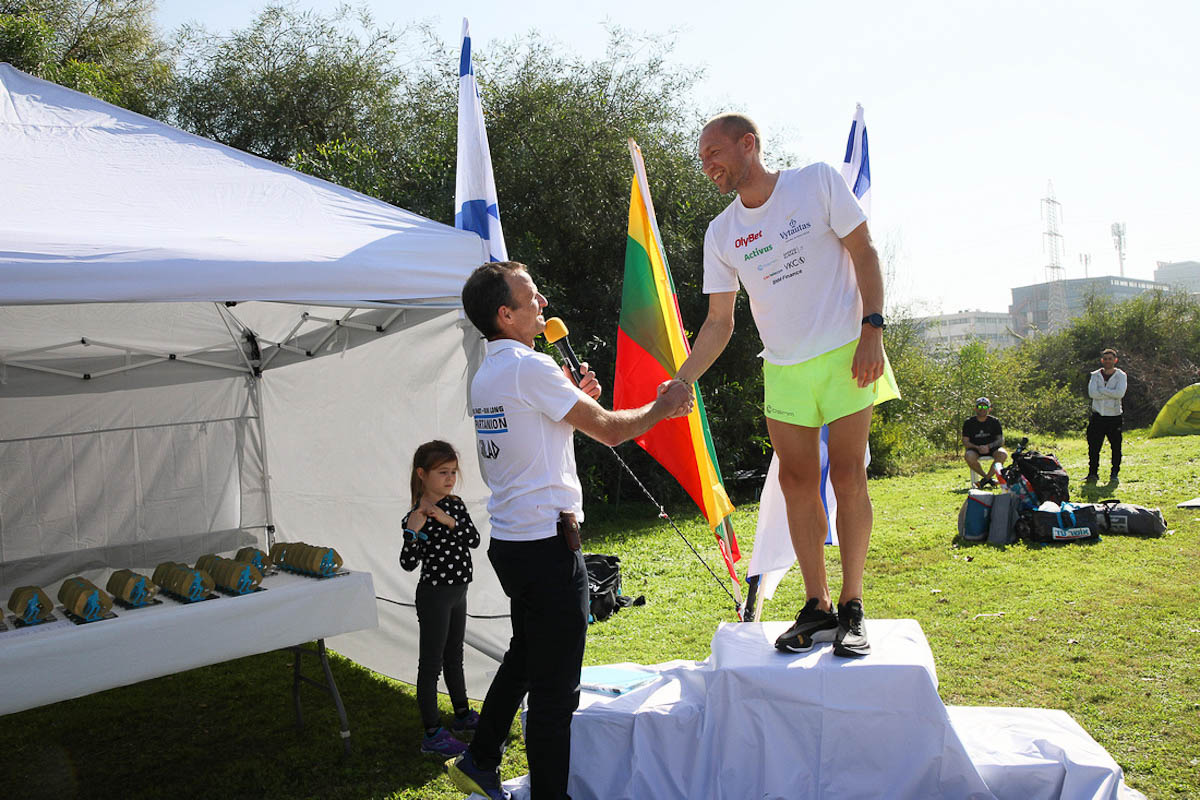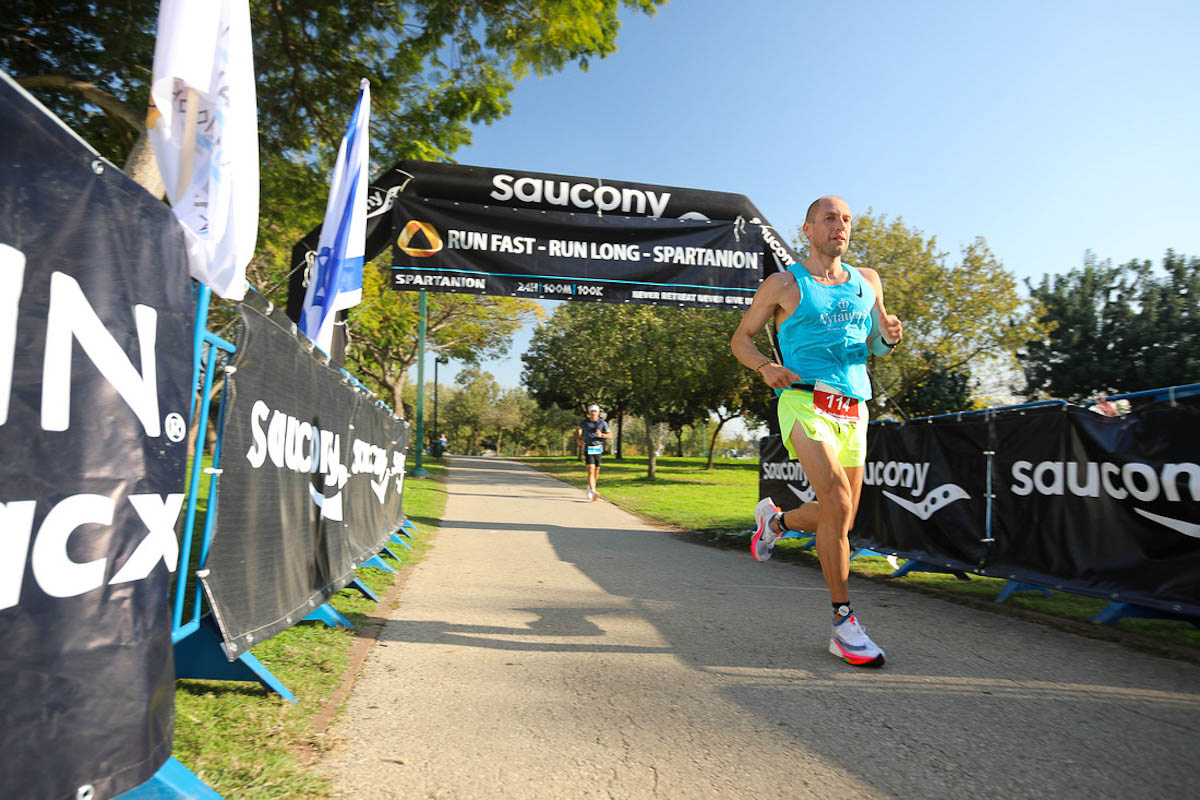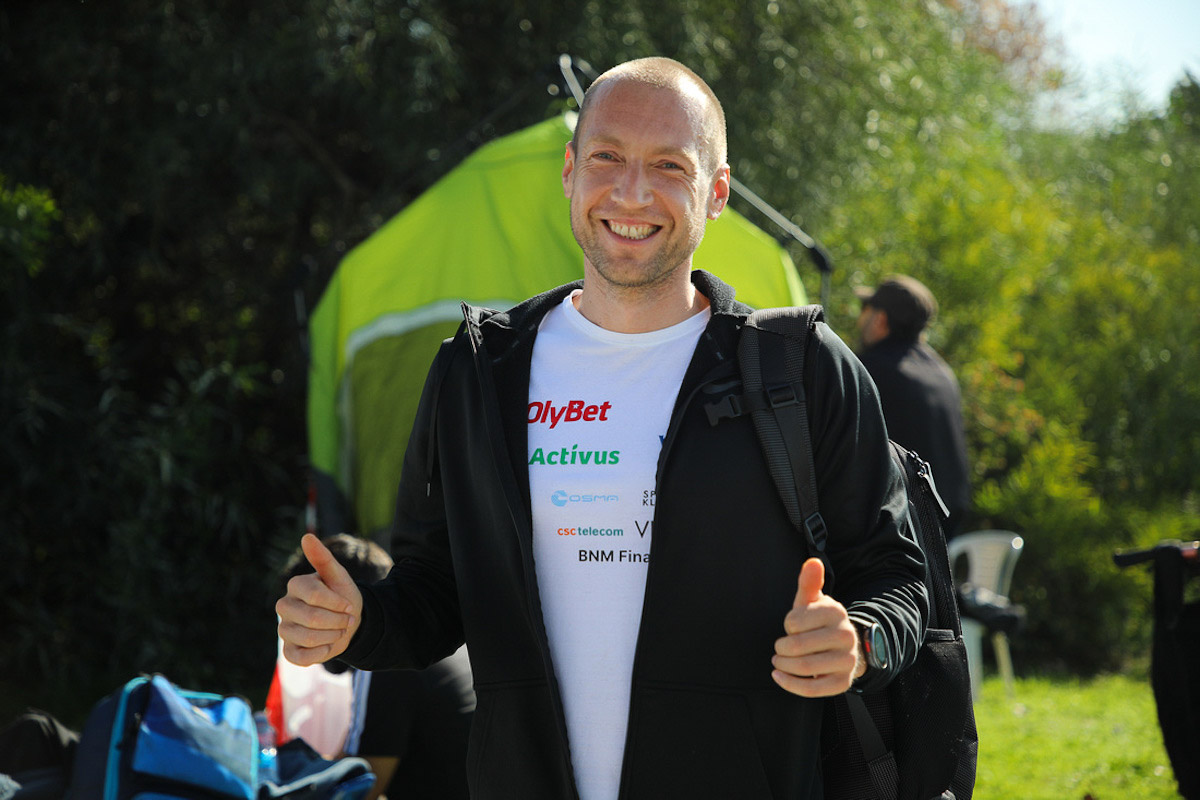Last week, Lithuanian ultrarunner Aleksandr Sorokin set two new world records for 100 miles and 12 hours at the 2022 Spartanion race in Tel Aviv, Israel.
By running an outrageous average pace of 6:32 minutes per mile (4:04 minutes per kilometer) for 12 hours, Sorokin set a new 100-mile world record in 10 hours, 51 minutes, and 39 seconds, as well as a new 12-hour world record by running 110.24 miles (177.41 kilometers).
This effort breaks his own previous world records of 11:14:56 for 100 miles by about 22 minutes and 105.825 miles (170.309 kilometers) for 12 hours by about 4.4 miles (about 7 kilometers). Sorokin’s latest records are still to be confirmed at the time of this article’s publishing.
In this interview, we speak with Sorokin about this performance, what changes have taken place in the last year of his life that have allowed him to set five ultramarathon world records, and what he’s planning for the rest of 2022.
To learn more, you can also read our news article about Sorokin’s effort.
iRunFar: Congrats on your 100-mile and 12-hour world records! In the last 10 months, you’ve set five world records, two times each for 100 miles and 12 hours, and also for 24 hours. (Read more about his 24-hour world record in 2021 with our news article and interview.) What feelings and thoughts do you have about this accomplishment? You said you had so many emotions that you couldn’t sleep the night after your performance!
Aleksandr Sorokin: Emotions are very good, especially when you accomplish your plan. The previous 100-mile and 12-hour world records were weaker than the 24-hour record, so I had a plan to improve them. I started having thoughts that if you want to run faster, you need to work more than 100%. After the race, there were of course emotions of joy that kept me awake at night, plus the pain in my legs; I couldn’t fall asleep because of that.
iRunFar: Walk us through your decision to tackle this effort. How did you decide to travel to the Spartanion event in Israel? To what degree did you think you could improve your performances over last April at the Centurion Running Track 100 Mile in England? (You can read our news article and interview with Sorokin about that race, too.)
Sorokin: Actually, the plan to run in January came unexpectedly. I have some sponsors and I had to work for them; my friend suggested to find some race in the winter. I had three options to choose from: [races in the] USA, Israel, or Taipei. We chose Israel. As I mentioned before, those records were weaker, so I decided to improve them. The preparation was better, I felt stronger than I was last spring, so I hoped to improve the result.
iRunFar: How has your training changed in the last year? When we interviewed you last April after Centurion, you pointed to your history in taking up running as an adult for recreation and health, and then your massive improvement at Centurion due to not working during the COVID-19 pandemic. To what do you attribute your gains in the last year since then? Are you running more? Training differently? Doing cross-training and other exercise?
Sorokin: These were the main factors that influenced [my improvement]: I became a professional [runner], I could spend more time training, and I increased my workload bit by bit. Also, I got a trainer from Poland, Mr. Sebastian Białobrzeski. Not much else has changed since the spring record, just that I can spend more time running.
iRunFar: Can you share what a week of your training looked like at your peak prior to Spartanion? Let’s say, maybe five weeks before the race?
Sorokin: [I run] 200 to 300 kilometers every week, three long runs, two interval sessions, gym sessions several times per week, and sometimes [I go to the] pool. All the rest was mostly recovery runs.
iRunFar: When you started Spartanion, did you start the race with any particular time or pace goals?
Sorokin: I did not set any goals for myself, I just wanted to run a little faster than I did in England. I pushed too hard in the start, so I suffered in the end.

Aleksandr Sorokin lying down next to the course after he finished the 12-hour race, waiting until race officials measure his exact distance. Photo: Tomer Feder/Sport Photography
iRunFar: How did the first 80k unfold for you? How did you feel? How was your pacing? Did you have a crew helping you? How did you fuel? It looked from your splits that maybe you were trying to pace around 6:20 minutes per mile or 3:45 minutes per kilometer for as long as possible?
Sorokin: For the first 80k, I ran too fast; I knew about it, but there was nothing I could do. I did not have any goal to run at a certain pace, I was just trying to enjoy running. My fueling plan was something like this: drink 250 milliliters of liquid every 30 minutes and get 200 calories from that. My [crew] helped me a lot. I met him just before my flight; he is also named Aleksandr. I am very grateful to him for all his help and support during the running.
iRunFar: You have spoken in our previous interviews about how you await and accept the discomfort of working so hard in these efforts. When did the discomfort start? When did it require a lot of effort to focus on moving through the pain?
Sorokin: As I mentioned previously, I was a bit too fast at the beginning, which made me suffer at the end. The last two to three hours were very hard. But I knew that it would be over soon, and this gave me strength to move on. Also, it is much easier to run 12 hours than 24 hours. What helped me a lot were thoughts about my wife, friends, and the fact that all of Lithuania was supporting me.
iRunFar: From your splits data, it looks like you were pushing quite hard for the last five kilometers before hitting the 100-mile mark. Can you tell us what was going on in these kilometers? Were you trying to take the mark as low as possible?

Aleksandr Sorokin accepting his award for the 12-hour race at the 2022 Spartanion. Photo: Tomer Feder/Sport Photography
Sorokin: Actually, I wasn’t trying to run differently, maybe it’s just something in your mind, that when you approach the 50k, 100k, and 100-mile marks you want to pass them faster, so when you are approaching them, you automatically increase your speed.
iRunFar: What was it like to set the 100-mile world record at 10 hours and 51 minutes, and then still have 70 minutes to run for the 12-hour world record? How do you convince your mind and body to keep going?
Sorokin: It was harder to do it in England, because I was planning to run only 100 miles, but the race organizers suggested I run further. This time I was planning to run the whole 12 hours; 100 miles was just a split [in the race].
iRunFar: Ultimately, you ran for 12 hours, stopped on the course, the officials marked and measured your finish spot, and you sat there, waiting for the official distance to be measured. Can you share your thoughts and feelings in that moment?
Sorokin: It was a moment of happiness and joy, because the work was already done. I could relax and didn’t need to think about running, I could lay down and enjoy the win. That was one of the best moments.
iRunFar: What will your recovery look like in the next few weeks?
Sorokin: I will watch my body now and it will tell me when can I start preparing again. That will take around one or two weeks. I am not planning to do anything special about that, maybe I will just restrict myself less about the food, and will go to the sauna.
iRunFar: What are your racing plans for 2022?
Sorokin: I don’t have a precise plan yet. The pandemic keeps on changing it anyway. I think that the main start will be IAU 24-Hour European Championships. Maybe I will participate in some races during spring and summer.
iRunFar: Congrats again, Sania!


